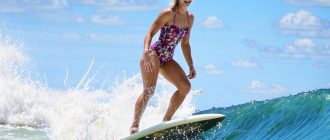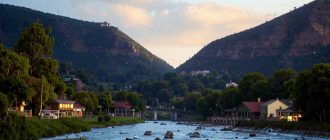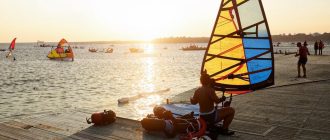Lovers of outdoor recreation open the season of hiking. All that remains is to choose a destination and take care of safety measures. No matter what you choose – trekking, camping, canoeing – you need to be ready for any surprises. Already planned your trip? Read our memo before you go, so that your vacation will not spoil your mood.

Nutriciologist, specialist in integrative and preventive medicine
Tells about the precautions to take when camping.
In addition to ticks, dangerous gadflies, horseflies, gnats, hornets and wasps, bees, some types of mosquitoes, ants. The bite is not so terrible, although it also causes discomfort, but an allergic reaction to it. The doctor recommends keeping on hand available antihistamines and observe preventive measures:
- Use repellents. The forms of such means are diverse: some are suitable for processing clothes, others are applied to the skin;
- avoid using sweet perfumes and deodorants;
- eat in safe places, away from hives, anthills and insect colonies;
- choose pine or other coniferous forests for recreation, as humidity is lower and ticks are less common;
- after returning home, examine yourself and your loved ones to find ticks that have not yet had time to suckle and have not started drinking blood. The most “desirable” places for ticks are on the elbow, under the chest, under the knees, in the groin, behind the ears. If the tick is sitting on the skin, you should try to gently remove it. If it has already sucked on and pull it out does not work – go to a trauma center.

Sun
Vitamin D – an essential hormone that is synthesized only when ultraviolet light hits the skin. In this case, a person should actively move: do sports, walk, work, opening the maximum surface of the body. But, unfortunately, besides the benefits, the sun brings problems.
Irina: It is proven that excessive absorption of ultraviolet rays contributes to the development of melanoma. We are talking about excessive absorption. Sunbathing is not harmful if you do it correctly. Use cream protectors, go out under the sun not in the peak of heat (before 11:00 or after 15:00), try not to overheat. It is worth remembering about overheating, sunstroke, which is especially dangerous for people with cardiovascular disease, unstable blood pressure.

Low-quality food
Now is the time of overseas delicacies, sweets, beach harm, beer, chips and other “pleasant” food products. Here you should not forget about the general rules of food storage on hot days. Do not neglect the refrigerator, timely hide meat and dairy dishes, eggs, cheeses in the cold. Use cooler bags.
Irina: The next point is low-alcohol soft drinks. Why they are more harmful than strong alcohol – a low-alcohol drink does not imply rapid alcohol intoxication, which means that a person can drink them in much larger quantities. This is especially true of beer. Our main detoxifying organ, the liver, does not cope with such loads, fatty hepatosis develops.
Unknown food, overseas, atypical for the diet can cause allergies, including latent allergies. You may not even notice an inflammatory reaction. Carefully monitor your symptoms after eating new foods.

Unknown berries, mushrooms and fruits and plants
City dwellers are often poorly oriented in the gifts of the forest. It is easy for a misunderstanding person to confuse a white mushroom with a grebe. It is better not to take risks. Going to the forest, nature, camping, put yourself a ban on picking and eating unknown mushrooms and berries. Moreover, try not to buy canned or fresh mushrooms from people “on the road”. You never know where the danger may lie.
Irina: Each region will have its own dangerous mushrooms and berries. Common ones are fly agaric, pale grebes, red mushrooms, wolfsbane. Not only those eaten can be dangerous. There’s a widespread borschtweed that leaves burns. Honeysuckle, prostrel, buttercup – herbs that more often than others cause allergic rashes on the skin.

Water
There is a whole range of dangers associated with water – from unclean bottoms (glass, cans, syringes and garbage that can leave cuts, punctures, cause blood poisoning) to bites from sea, river or lake inhabitants.
Irina: It is worth mentioning cramps, which can occur accidentally and in any person. In this case, you need to prick the limb with something sharp, roll over on your back and spread your arms so that the water holds you until the limb moves away. Also in the water can live those who bite and prick painfully and dangerously – leeches, crayfish and other inhabitants. Avoid contact with “strangers” if possible. They can cause an allergic reaction.

What else can wait in the water? Underwater currents, whirlpools, large waves.
All of the above can be life-threatening. So never swim where it’s forbidden. Don’t check out bodies of water on your own. Choose crowded places so that in case of an emergency, help arrived immediately.
A separate category – entertainment on the water – jumping from rocks, piers, breakwaters and racks. It’s great if everything goes well. But, incorrectly grouped, you can get a fracture (limbs, spine, neck), bruises, injuries of various kinds. The same applies to water surfing, catamarans, bananas, scooters and other extreme entertainment. It is worth performing all tricks only with full confidence in the acquired skills or under the supervision of a specialist.

Snakes and wild animals
Snakes are found in tall grass, in water bodies, in reeds. If you notice a snake – it is better not to approach it and it is desirable to get out of the water. Do not take in hand, tease with sticks.
Irina: As for wild animals, they most often do not approach people. If the animal (fox, raccoon, hares and others) are quite affectionate, friendly, it is likely that they are infected with rabies. It is better to keep a distance from them, close tents at night while camping, check before going to bed.

Animals that are not infected with rabies are also dangerous. For example, wild boars, coyotes, skunks. Don’t tease them, don’t scare them, don’t get close. Nature is good from afar, observe it, but do not interfere with its laws.






